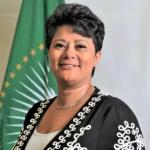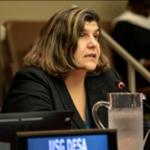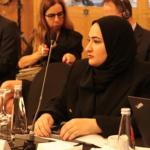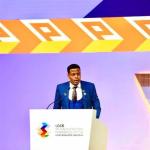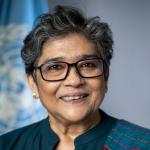(What are game changing actions to implement the Doha Programme of Action for LDCs? What are potential solutions to support crisis response, recovery and SDG progress?
African countries, Least Developed Countries and Landlocked Developing Countries have been disproportionately affected by the confluence of interlinked global crises, reversing progress towards the Sustainable Development Goals. The group of 46 Least Developed Countries, which includes 33 African countries, remains marginalized in the world economy and faces challenging financial situations that limit their ability to increase productive capacity and invest in climate resilience. The group of 32 Landlocked Developing Countries, which includes 17 Least Developed Countries, are further disadvantaged by lack of territorial access to the sea, isolation from world markets and high transit costs that continue to impose serious constraints on their socio-economic development and require support for investments in transportation networks and trade facilitation.
The Doha Programme of Action, adopted in 2022 and endorsed by world leaders this year at the fifth United Nations Conference on Least Developed Countries, focuses on investing in people to eradicate poverty and build capacity; leveraging the power of science, technology, and innovation to fight against multidimensional vulnerabilities; supporting structural transformation as a driver of prosperity; enhancing international trade and regional integration; addressing climate change and environmental degradation, recovering from COVID-19 and building resilience against future shocks; mobilizing international solidarity, reinvigorated global partnerships, and innovative tools and instruments. These priority areas are also important for Landlocked Developing Countries and African countries.
This session will focus on examples of policies, measures and actions underway to improve the lives of the most vulnerable, in the countries furthest behind. It will include actions that must be taken urgently to ensure that progress can be made, and solutions for bridging gaps in energy, digital technologies, and gender equality. The discussion will invite examples of inclusive governance and strengthened institutions that apply peer learning activities and whole-of-society approaches that have benefitted from the follow-up and review exercise undertaken through Voluntary National Reviews, reflecting on progress in domestication of the SDGs and their alignment with national development plans, integrated national financing frameworks and strengthened statistical capacities for measuring progress.
In order to get back on track, the international community has been called upon to advance the Doha Programme of Action, as well as Africa’s Agenda 2063, and the Vienna Programme of Action for Landlocked Developing Countries. This means fulfilling existing commitments for Official Development Assistance and undertaking new partnerships that leverage progress along multiple pathways, to ensure that these countries are not left behind.
Proposed guiding questions:
- What transformative financing measures are needed to accelerate recovery, ensure progress towards the SDGs, and advance the Doha Programme of Action, Africa’s Agenda 2063, and the Vienna Programme of Action?
- Where have Governments succeeded in integrating the SDGs into national development plans, building capacity for implementation, strengthening institutions, and increasing national statistical capacities for measuring progress?
- How can the global green energy transition, and the associated demand for natural resources to meet it, be leveraged to support sustainable and inclusive industrialization and structural transformation and ensure a just transition for LDCs, LLDCs and Africa?
- What is being done to increase participation and inclusion of women and youth in governance, institutional frameworks, and the labour force? What barriers need to be removed?
- What are development partners doing to close the digital divide, build capacities for inclusive participation in the digital economy, and improve connectivity for small- and medium-sized enterprises?
- What policies are being put in place to realize the potential of the African Continental Free Trade Area, and what needs to happen next?
Chair:
- H.E. Ms. Lachezara Stoeva, President of ECOSOC
Keynote/Presentation:
- H.E. Ms. Rabab Fatima, High Representative for the Least Developed Countries, Landlocked Developing Countries and Small Island Developing States (UN-OHRLLS), Secretary-General for the LDC5 conference (Messages from the LDC5 Conference)
Video:
- A short film by the International Organization of Employers on their partnership to develop a Doha 5-point private sector strategy for SDG advancement
Interactive panel discussion
Moderator:
- Ms. Mavis Owusu-Gyamfi, Executive Vice President of the African Center for Economic Transformation
Panelists:
- H.E. Ms. Namira Negm, Ambassador, Director of African Union Migration Observatory
- Mr. Dulguun Damdin-Od, Executive Director, International Think Tank for Landlocked Developing Countries
- Ms. Dima Al-Khatib, Director of the United Nations Office for South-South Cooperation
- Mr. Yacouba Ibrahim Oumarou,Global Forum of Communities Discriminated on Work and Descent, Niger (MGoS)
Lead Discussants:
- Ms. Rwodah Al Naimi, Strategic Partnership Department Manager, Qatar Fund for Development
- Mr. Humphrey Mrema, Chairman at Youth Survival Organization and Youth4Climate Advisory Committee Member, youth speaker
Interventions of Ministers and other participants (3 minutes each)
 Welcome to the United Nations
Welcome to the United Nations
